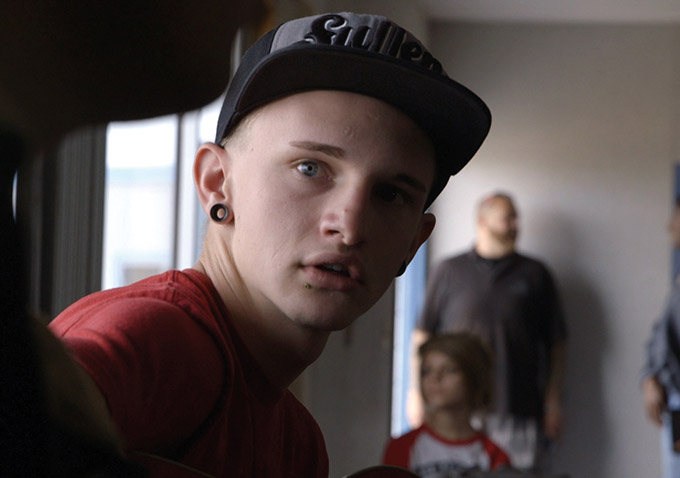“What do you want out of life?” a probation officer asks the teenage Joey in the opening moments of “The Bad Kids.” It’s the kind of question that Joey, and the other Californian teens profiled in the the new documentary from directors Keith Fulton and Lou Pepe (the team behind “Lost In La Mancha”), have likely never considered. Coming from backgrounds of domestic instability, teenage pregnancy, homelessness, substance abuse, and more, for many, their lives are about survival, and the future comes one day at a time. However, Black Rock High School in the Mojave Desert offers an alternative to the regular school system where these kinds of kids are left to falter, often dropping out.
Taking us into the lives of these kids and halls of the school, “The Bad Kids” has a simple purpose — to show these teens are not beyond saving. Indeed, it’s a wise choice not to turn the movie into a polemic about the crumbling state of public education, or how parents might be letting down their children. Rather, Fulton and Pepe, utilizing an observant verité approach with only very few direct interviews or interactions with their subjects, want to highlight how these kids are able to pull themselves through some tremendously difficult personal situations and achieve academic success. Indeed, Black Rock doesn’t hand hold their students, but rather, gives them the kind of daily attention and encouragement they don’t receive in the standard school system.
The driving force for this compassionate approach to education at Black Rock comes from Principal Vonda Viland, who lays out a simple set of rules for students entering her doors: the curriculum will move at each individual’s own pace, and there’s no detention. Effectively, students can earn the credits for their high school diploma as quickly or slowly as they need to, and while the teachers will be intimately involved in their progress, the motivation has to come from the pupils. However, that’s not to say Viland and her staff are ignorant of the fact their students strive against circumstances that can make their schoolwork seem insignificant. Indeed, Viland is probably the only principal who will actively tell her students that much of what they’re doing likely won’t apply to them in the future, but she stresses everything is being done to give them a chance at bettering their lives and opening doors. Her investment and deeply felt connection to her students is astonishing and deep, to the point that she weeps when she’s forced to expel someone, and when she tells kids, “I love you,” she means it.
Loosely centered around the aforementioned Joey, along new father Lee and the ambitious Jennifer, “The Bad Kids” falters due to a lack of focus. The documentary vacillates between being an intimate portrait and a wider look at the fractured homes these kids come from. And it’s the latter where Fulton and Pepe lose a bit of a handle on things. With only one probation officer and two relatives ever making it to camera, the full scope of the difficulties these teens face when they’re not at school is shown through a narrow lens. While the filmmakers mostly stick to a verité style, the times they do adapt a more traditional feel aren’t particularly well chosen. As a whole, “The Bad Kids” leaves the documentary’s most fascinating person, Vonda Viland, frustratingly unexplored. A dynamic and magnetic personality, you want to know more about what drives her to get to wake up in the wee hours of the morning, arrive at school before 6 AM, and start calling her students to make sure they show up that day. Vonda relates to another student her own fractious background, and it’s undoubtedly one that informs her role as principal. And yet, the viewer is only left to guess at the journey that brought Vonda to Black Rock, and where her deep well of sympathy for her students comes from.
The title “The Bad Kids” is clearly meant to play on the preconceived notions the public and even educators still have about teens who can’t apply themselves within the rigors of a dogmatic school system that doesn’t cater to students individually, but leaves them to sink or swim, with no regard to their personal needs. Fulton and Pepe’s film shows there is another way, and the successes witnessed at Black Rock are miniature moments of triumph. But for every student that leaves with a sense of accomplishment, another comes in the doors of Vonda’s school, and that the film is only a brief slice of an ongoing cycle is unsettling. [B-]
Click here for our complete coverage from the 2016 Sundance Film Festival






Hmmm, I\’ve personally had enough hero teacher movies. This sounds very interesting.